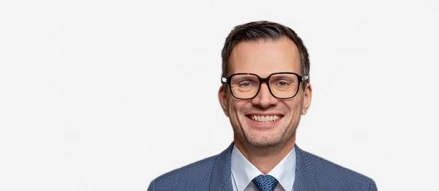
No fixed establishment by subcontractors - ECJ judgement "Cabot Plastics Belgium SA" (C-232/22)
No fixed establishment by subcontractors
The facts and the question referred
Cabot Switzerland GmbH, based in Switzerland, had commissioned the Belgian company Cabot Plastics, which is closely associated with it under company law, to refine certain raw materials. Cabot Switzerland sold the resulting products from Belgium to various customers.
Cabot Plastics was only allowed to use the necessary equipment owned by Cabot Plastics for this activity and not for orders from other customers. Cabot Plastics also provided Cabot Switzerland with various additional services, such as the temporary storage of products, technical inspections, and advice on process optimisation.
Cabot Switzerland had neither its own facilities nor personnel in Belgium.
The question to be clarified was the place of supply of the services provided by Cabot Plastics to Cabot Switzerland, which is to be assessed according to the general rule of Article 44 of the VAT Directive. Accordingly, it is at the place of business of Cabot Switzerland GmbH in Switzerland - unless Cabot Switzerland had a fixed establishment in Belgium and had obtained the services for this establishment. The ECJ had to clarify whether the equipment and personnel of Cabot Plastics could be attributed to Cabot Switzerland GmbH and it thus lead to it being considered a fixed establishment of Cabot Switzerland GmbH in Belgium.
ECJ: No fixed establishment
The decisive factor was whether Cabot Switzerland had an establishment in Belgium with a sufficient degree of permanence and a suitable structure in terms of human and technical resources to enable it to receive and use the services supplied to it for its own needs.
As in previous decisions, the ECJ clarified that the technical resources did not necessarily have to be owned by Cabot Switzerland - a rental agreement that could not be terminated at short notice would also have sufficed. However, Cabot Switzerland should have been able to dispose of the resources as if it were its own. This was not the case, although Cabot Plastics was only allowed to use the equipment for Cabot Switzerland's products. Even if a company has only one customer, it is still considered to be using its equipment to fulfil its own needs. Only if the contractual agreements had granted Cabot Switzerland direct and permanent access to the equipment as if it were its own would the situation be different.
A fixed establishment would also have to have enabled Cabot Switzerland to use the purchased services there. The use of the input services, hereby, had to be distinguished from the sale of the resulting products. However, with reference to the "Berlin Chemie" decision, one and the same equipment could not simultaneously serve the service provider to provide the service and the service recipient to use it.
The fact that the two companies were closely associated, and that Cabot Plastics provided additional services beyond contract processing was not relevant in itself.
Practical implications
The question regarding the attribution of third-party resources, which is the focus here, has already occupied the ECJ on several occasions (most recently in the Titanium and Berlin Chemie cases). The present ruling follows the lines of these previous cases and further clarifies the criteria elaborated there. The close association under company law and the economic dependence of a subcontractor alone does not make it a fixed establishment of the principal. The ECJ also reiterates the decisive principle here, which is that one and the same resources cannot be used to provide a service while simultaneously receiving the same service. However, this raises the question of whether the supplier’s resources can ever be considered a passive fixed establishment of the supply’s recipient, even if the latter, unlike in the present case, can dispose of the resources like an owner.
Such situations are further complicated by the fact that the ECJ has ruled in the DFDS, Daimler and Widex, Dong Yang and Berlin Chemie cases that a subsidiary can be a fixed establishment of the parent company. How the various case scenarios differ is not always comprehensible here.
Dated: 18 July 2023
Author
Nadia Schulte
+49 211 83 99 330



